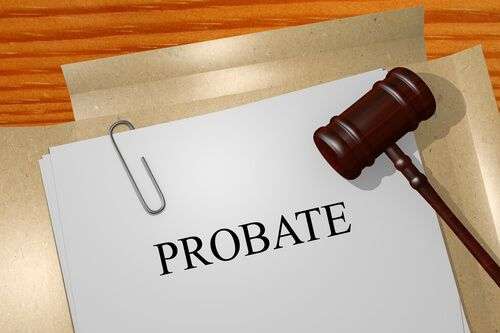Probate litigation is a crucial step in the probate process. It takes place when a will is officially submitted to examine it for false information or fraud carefully. An experienced specialist probate litigation attorney will have the knowledge to determine any fraudulent claims a will might present.
The Probate Process
When a party submits a claim stating that there is evidence of fraud during the probate process, a probate fraud litigation takes places. First and foremost, probate occurs when the court recognizes a person to administer a deceased’s individual’s assets – also known as the appointed executor or personal representative. If there is no will, then the probate court is tasked to name an administrator.
The probate process begins when an executor or personal representative presents the will and death certificate of an individual. The state will examine the death certificate to confirm the death of the individual. Then, the will is verified for its authenticity. If everything is in order, the executor (or administrator) pays the necessary fee to receive official documentation that proves he or she can manage and represent the estate.

Is There Fraud?
If fraud took place and the will was submitted with the intent to deceive, it needs to be proven to the judge with proper evidence. Probate litigation can significantly assist in gathering evidence in the form of testimony and documents. When it comes to collecting evidence, the Rules of Evidence must be followed. Depositions, expert witnesses, subpoenaed documents – these items are also subject to the objections by the other party’s attorney.
What to Look For
If you’re wondering what to look for if you are suspicious of estate fraud, here are some scenarios.
- A relative uses his or her authority as an agent of your deceased parent’s power of attorney to get money from the deceased’s bank account for personal gain;
- A disowned sibling ruins or damages your deceased parent’s will to achieve intestate succession where the sibling would get a share of the assets;
- A family friend uses unjustified influence to make your dying parent alter designations of beneficiaries;
- The trustee of your deceased parent’s trust keeps delaying the administration of the estate and spends the trust fund for personal gain.
As you can tell, the motive for estate fraud has always been money. And a signature on a piece of paper is all it takes to move amounts of wealth from one individual to another. Estate beneficiaries often raise many questions about the property in an estate, will, or trust, of a deceased person. Some of these questions are:
- Why did he/she get all the money?
- Why is he/she the executor?
- Where is the rest of the money? I thought there’s more.
Often, beneficiaries grapple with many queries regarding inheritances, assets, and estate – anywhere the money happens to be. Unfortunately, it brings out the ugly side of people. That is why if you suspect estate fraud, it’s best to have a probate litigation attorney in your corner.
There are red flags to look for that cast doubt on the authenticity of a deceased person’s estate plan. More often than not, the people who are closest to the dead – be it a family member, a healthcare provider, or a trusted advisor – take money from the estate due to coercion, undue influence, and manipulation.
Unfortunately, estate theft often goes undiscovered. And a case for this type of theft is usually made out only by circumstantial evidence. The family of the deceased person often just accepts an illogical estate plan, chalking it up to their deceased loved one’s wishes. They don’t have a clue on how to properly investigate a theft or even what to look for.
Key Point

To ensure victory in a probate fraud trial, or to win a trial that involves a will, trust, estate, or inheritance, the petitioner must prove without a doubt that acts of fraud with the testimony, documents, and other evidence were committed. Additionally, anyone who files a fraud lawsuit or who contests or objects to a will based on fraud, must have a solid basis for even initiating the lawsuit. For instance, undue influence is a common type of estate fraud. This can be proven by determining instances of over-persuasion, force, or duress.
Follow Your Gut
If you have strong suspicions of fraud when it comes to your deceased family member’s estate, consult with a probate litigation attorney. More often than not, there are logical explanations for odd and unexpected changes to a will.
